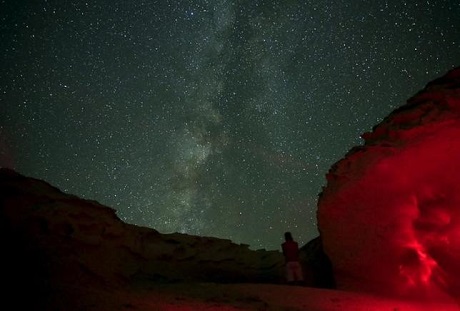The universe is expanding faster than previously believed, a surprising discovery that could test part of Albert Einstein’s theory of relativity, a pillar of cosmology that has withstood challenges for a century.
The discovery that the universe is expanding 5 percent to 9 percent faster than predicted, announced in joint news releases by NASA and the European Space Agency, also stirs hypotheses about what fills the 95 percent of the cosmos that emits no light and no radiation, scientists said.
“Maybe the universe is tricking us,” said Alex Filippenko, a University of California, Berkeley astronomer and co-author of an upcoming paper about the discovery, according to Reuters.
The universe’s rate of expansion does not match predictions based on measurements of the remnant radiation left over from the Big Bang explosion that gave rise to the known universe 13.8 billion years ago.
One possibility for the discrepancy is that the universe has unknown subatomic particles, similar to neutrinos, that travel nearly as fast as the speed of light, which is about 186,000 miles (300,000 km) per second.
Another idea is that so-called “dark energy,” a mysterious, anti-gravity force discovered in 1998, may be shoving galaxies away from one another more powerfully than originally estimated.
“This may be an important clue to understanding those parts of the universe that make up 95 percent of everything and that don’t emit light, such as dark energy, dark matter and dark radiation,” physicist and lead author Adam Riess, with the Space Telescope Science Institute in Baltimore, Maryland, said in a statement.
Riess shared the 2011 Nobel Prize in Physics for the discovery that the expansion of the universe was speeding up.
The speedier universe also raises the possibility that Einstein’s general theory of relativity, which serves as the mathematical scaffolding for calculating how the basic building blocks of matter interact, is slightly wrong, NASA said.
Riess and colleagues made their discovery by building a better cosmic yardstick to calculate distances. They used the Hubble Space Telescope to measure a particular type of star, known as Cepheid variables, in 19 galaxies beyond our own Milky Way galaxy.
How fast these stars pulse is directly related to how bright they are, which in turn can be used to calculate their distances, much like a 100-watt light bulb appears dimmer the farther away it is.
H.Z

